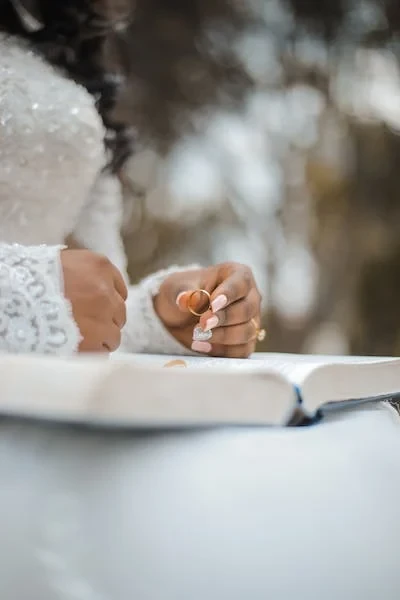
Arranged Marriage in Bangladesh: Unveiling Tradition and Modern Dynamics
Arranged Marriage in Bangladesh: Unveiling Tradition and Modern Dynamics
Introduction
Arranged marriages have been an integral part of Bangladeshi culture for centuries, embodying the values of family, community, and cultural continuity.
Traditional Significance of Arranged Marriages
Arranged marriages hold deep-rooted significance in Bangladeshi society, where family bonds and community ties play a pivotal role. These marriages are viewed as partnerships between not just individuals, but also families, ensuring compatibility, shared values, and common backgrounds.
It is common to celebrate arranged marriages as a chance to deepen intergenerational ties and promote community harmony. Families actively participate in matchmaking in many cultures, taking into account elements including compatibility, values, and social standing. This custom is based on the notion that marriage is a combination of families, customs, and shared histories rather than just a union between two people.
safeguarding cultural heritage
Arranged marriages' contribution to the preservation of cultural legacy is among their most important characteristics. Arranged weddings provide as a link to the past in a world that is modernizing and globalizing at a rapid rate. Individuals contribute to the survival of the traditions, languages, and practices that have been passed down through the years by getting married within their own cultural and religious communities.
The Function of Wisdom and Elders
The experience and counsel of more senior family members and community members are frequently used in arranged marriages. Their knowledge and insight are vital in helping them choose compatible partners with comparable beliefs and aspirations. The wisdom of the elderly is invaluable when it comes to understanding the value of kinship, respect, and cultural continuity.
A focus on longevity and stability
The security and durability of the marriage are frequently strongly emphasized in societies where arranged weddings are common. A lasting and harmonious relationship is the goal, thus couples are selected based on their compatibility and shared ideals. Stability is emphasized, which benefits the marriage as well as the family involved.
The Process of Arranged Marriages
The process of arranging a marriage in Bangladesh involves multiple steps. Parents, extended family members, and matchmakers collaborate to identify potential partners based on factors like family reputation, religion, caste, and economic status.
Evolving Perspectives on Arranged Marriages
While tradition continues to influence the practice of arranged marriages, perspectives are evolving. Many young individuals now seek a balance between familial expectations and personal preferences, aiming to find a partner who understands and respects both their cultural heritage and modern aspirations.
The Role of Technology in Modern Arranged Marriages
In the digital age, technology has transformed the way arranged marriages are approached. Matrimonial websites and apps allow individuals to connect with potential partners across geographical boundaries, expanding their choices while still considering cultural compatibility.
Navigating Cultural Identity and Choice
Arranged marriages often prompt questions about cultural identity and the freedom to choose a life partner. Many individuals are exploring ways to honor their heritage while also ensuring their happiness and emotional well-being in marriage.
Bridging the Generation Gap
Arranged marriages can sometimes lead to generational conflicts, as older family members uphold traditional practices while younger individuals seek greater autonomy in choosing a life partner. Open communication and mutual understanding are key to bridging this gap.
The Emotional Aspect of Arranged Marriages
The emotional journey of individuals involved in arranged marriages is a complex one. It involves navigating feelings of expectation, duty, and personal desires, highlighting the delicate balance between honoring tradition and embracing personal happiness.
The Influence of Education and Urbanization
As education and urbanization increase in Bangladesh, individuals are exposed to diverse perspectives and opportunities. This has led to a shift in the way arranged marriages are perceived, with a growing emphasis on compatibility, shared values, and mutual respect.
Balancing Tradition and Individuality
Arranged marriages in Bangladesh are a testament to the delicate art of balancing tradition and individuality. While upholding cultural practices, families are increasingly open to allowing individuals the freedom to express their preferences and contribute to the decision-making process.
Arranged Marriages and Gender Equality
The dynamics of arranged marriages are intertwined with questions of gender equality. Progress is being made as more families consider compatibility, shared responsibilities, and the aspirations of both partners.
Breaking Stereotypes: Successful Arranged Marriages
Numerous couples who have entered into arranged marriages have found lasting love and companionship. Their stories challenge stereotypes and underscore the importance of mutual respect, communication, and understanding in any successful marriage.
FAQs about Arranged Marriages in Bangladesh
Q: Are arranged marriages in Bangladesh forced marriages?
A: No, arranged marriages involve families introducing potential partners, but individuals still have the final say in accepting or declining the proposal.
Q: What role do parents play in arranged marriages?
Parents and family members play a significant role in identifying suitable partners based on cultural and family considerations.
Q: Can individuals in arranged marriages divorce if they are unhappy?
Yes, individuals in arranged marriages have the agency to divorce if the relationship becomes untenable. However, the cultural stigma surrounding divorce can still pose challenges.
Q: How can couples in arranged marriages build emotional intimacy?
Building emotional intimacy requires open communication, spending quality time together, and showing empathy and understanding for each other's feelings.
Q: Are love marriages becoming more common in Bangladesh?
Love marriages are becoming more prevalent, especially among the younger generation, as societal norms evolve and individuals seek compatibility and emotional connection.
Q: How can families support individuals in arranged marriages?
Families can support individuals by encouraging open dialogue, respecting their choices, and fostering an environment where emotional well-being is a priority.
Conclusion
Arranged marriages in Bangladesh are a tapestry of tradition, culture, and evolving values. While deeply rooted in history, these marriages are not static; they adapt to societal changes while preserving cultural heritage. The complexities and nuances of arranged marriages reveal a delicate dance between honoring the past and embracing the future, all while placing love, compatibility, and shared aspirations at the heart of the journey.